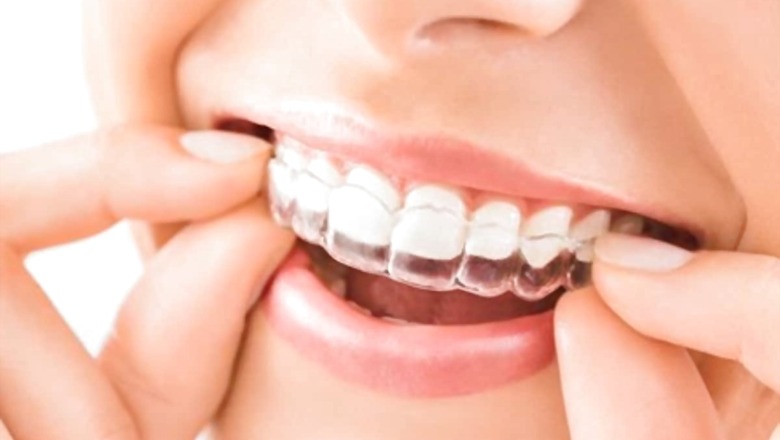
views
How often have you found bloodstains on your toothbrush or on the apple you just took a bite out of? Bleeding from the gums can be a sign of inflammation. Inflammation of gums is medically called gingivitis. The classic signs of gingivitis are red, swollen, tender gums which bleed upon brushing the teeth. If no treatment is given to the person, the condition of the gums can worsen and result in periodontitis. In periodontitis, there is detachment of gums from the jaw bone along with loosening of teeth, even at an early age. While this inflammation can occur to anyone with poor oral hygiene, it is also seen in people suffering from diabetes and high blood pressure.
Read on to know the steps that can be taken to manage inflammation in the gums:1. Brush your teeth regularly
Brushing is the most important part of your regular oral hygiene routine and one of the reasons for it is so is because it helps in keeping the inflammation-causing bacteria away. You should brush your teeth twice a day (once before eating breakfast and then after having dinner) with a soft or ultra-bristled toothbrush. Do not brush harshly or else you may end up hurting yourself.2. Use floss after brushing
Dental floss is not so commonly used by everyone but it is the best way of cleaning the space between your teeth. Unlike a toothpick, floss would clean the area without harming the gums or the teeth. Regular flossing along with proper brushing can prevent the collection of calculus on teeth, thus keeping the gums healthy.3. Get dental scaling done
Dental cleaning or scaling is a non-invasive procedure. It is the treatment done to clean the excessive build-up of plaque (sticky colourless bacterial deposit on the surface of the tooth) and calculus (hardening of plaque) on teeth. Plaque and calculus pull the gums down and transfer the bacteria inside the gums. Dental scaling is a painless procedure which does not require any anaesthesia. It is done with the help of an ultrasonic scaler that has blunt scaling tips which work via mechanical vibration along with continuous irrigation with water. One should get dental scaling done in every 6 months.4. Add vitamin C in your diet
Yes, vitamin C can improve the immunity of the body but it is also a reservoir of antioxidants. These antioxidants help the gums heal and repair themselves. Regular consumption of vitamin C helps in reducing the bleeding from gums and makes them healthier. You can add vitamin C rich foods such as oranges and lemons in your diet and if that isn’t possible, you can take over-the-counter supplements.5. Regular dental checkups
Everyone should ideally get their dental check-up done twice a year, irrespective of any dental issues or concerns. This could help your dentist rule out any dental issues such as gum inflammation or tooth cavity at an early stage.For more information, read our article on Gingivitis.Health articles on News18 are written by myUpchar.com, India’s first and biggest resource for verified medical information. At myUpchar, researchers and journalists work with doctors to bring you information on all things health.

















Comments
0 comment